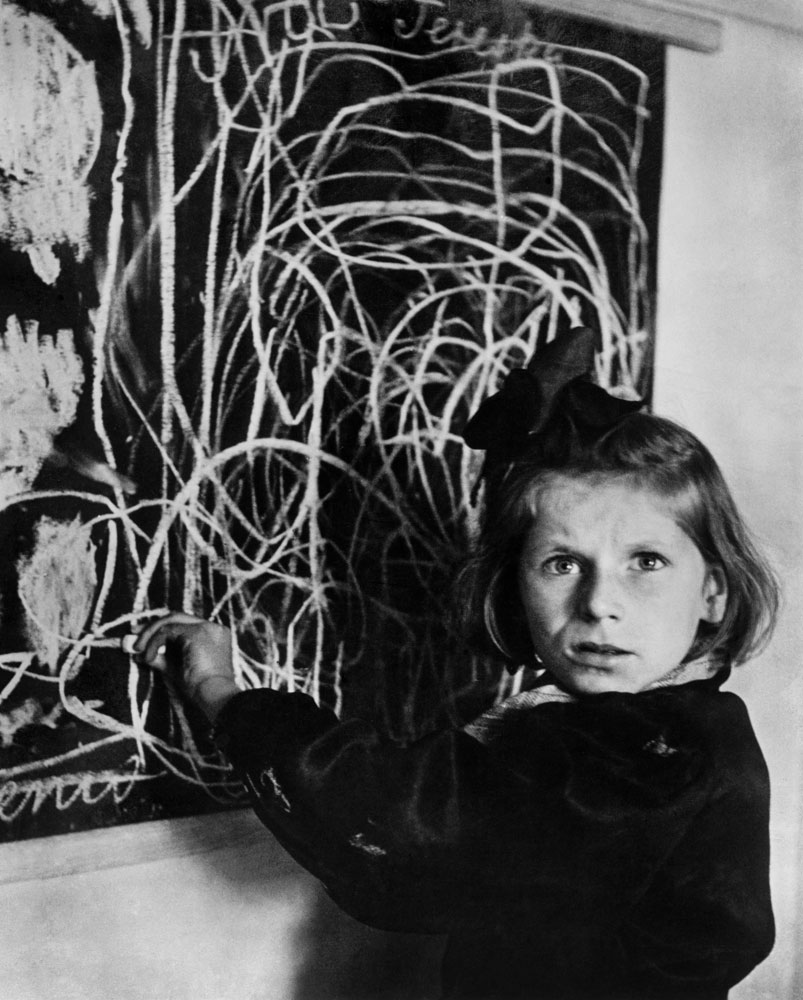
He was born Dawid Szymin in Warsaw in 1911, and would later anglicize his name to David Seymour, but for generations of photojournalism aficionados and history buffs who have marveled for decades at his astonishing pictures, made all over the world, he is primarily known by his self-chosen nom de photo: Chim. In 1947, Seymour joined Henri Cartier-Bresson, Robert Capa and George Rodger as a co-founder of the enormously influential photography collective, Magnum, and a year later was tapped by the newly formed United Nations Children’s Fund — UNICEF — to document the conditions endured by millions of children across post-war Europe.
For months, after buying a new car, from the spring of 1948 into the fall, Chim crisscrossed five European countries: Austria, Greece, Italy, Hungary and his native Poland. In late December of that year, LIFE published a number of Seymour’s pictures, telling its readers:
After almost four years of peace Christmas at last means more to Europe’s children than another dreary day in the midst of one more winter. Where for many there was only cold hunger, now there is some food and some warmth. Where there were no gifts, now there are some salvaged or new-made toys. In half a dozen nations this will be the brightest Christmas since the war’s beginning. But in Italy and Greece, Austria, Poland and Yugoslavia, millions will find Christmas more a day for wishing than for song. To bring home the misery of these children to American now enjoying the 84th Christmas since a war was fought on U.S. soil, photographer David Seymour traveled through five European countries on both sides of the Iron Curtain, [chronicling] scenes that were not necessarily typical but that best dramatize the enormous task [at hand]. A frantic girl in a Polish institute speaks for millions who are only unhappy. An armless, blind boy in an Italian home conveys the wretchedness of thousands who cry for help because they cannot help themselves.
[See the LightBox post, “A Second Look: Chim’s Children of War.”]
It’s perhaps worth noting that the five countries LIFE mentioned in the article — Italy, Greece, Austria, Poland and Yugoslavia — does not quite match the list of places where Seymour traveled for UNICEF in 1948; the fifth country in that list, if indeed it was meant to indicate the nations Seymour visited, should be Hungary, not Yugoslavia. Regardless, the real and enduring point here is that the work Seymour produced during those months in 1948, several years after the guns had stopped and something like peace — if not prosperity — had returned to Europe, remains relevant not merely because it’s masterful photojournalism, but because we are still confronted with heartrendingly similar scenes of children in crisis, in all parts of the globe, every single day.
As a new exhibition of Seymour’s work, We Went Back: Photographs from Europe 1933–1956 by Chim, opens at ICP in New York, LIFE.com presents the spreads from that original feature in the December 27, 1948, issue of LIFE — in tribute to Chim himself, and in memory of the millions left homeless, hungry and lost by all wars, then, now and always.
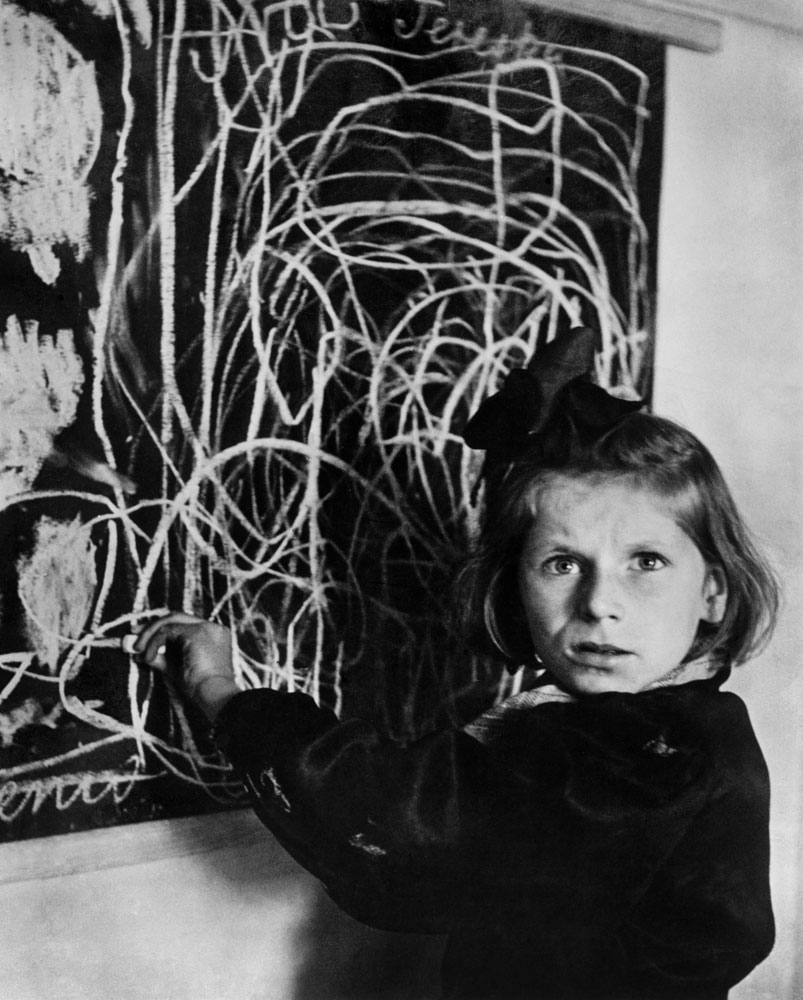
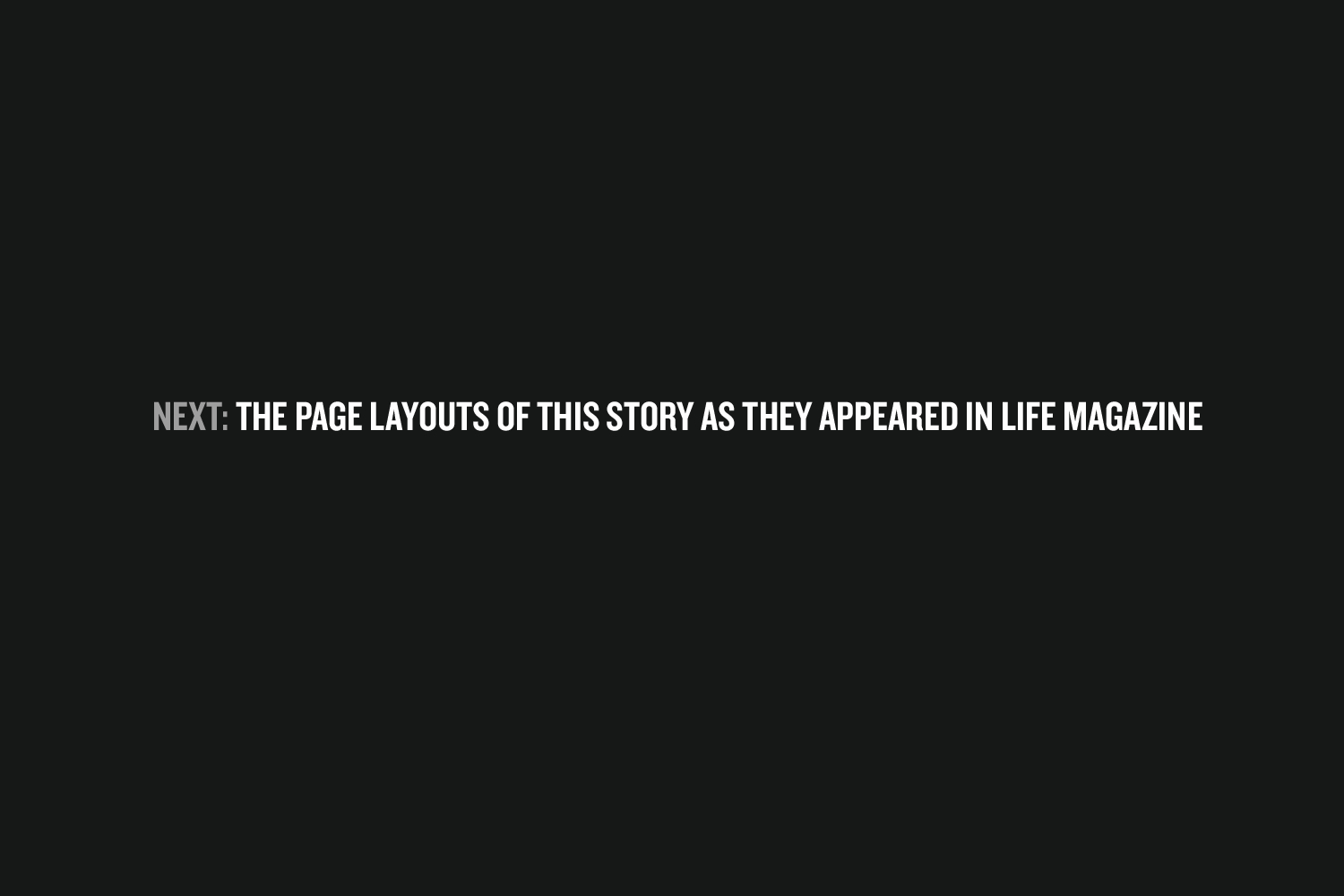
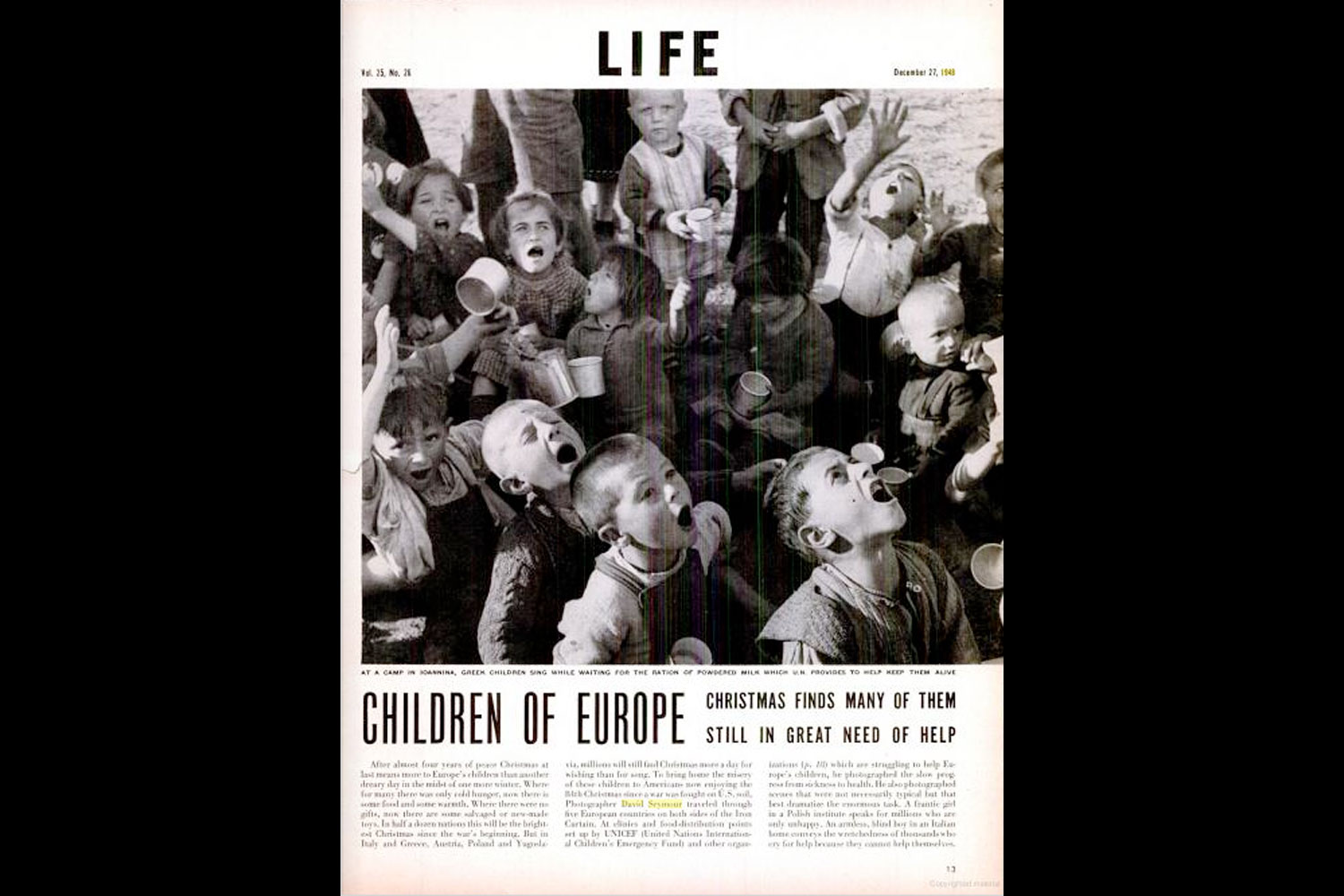
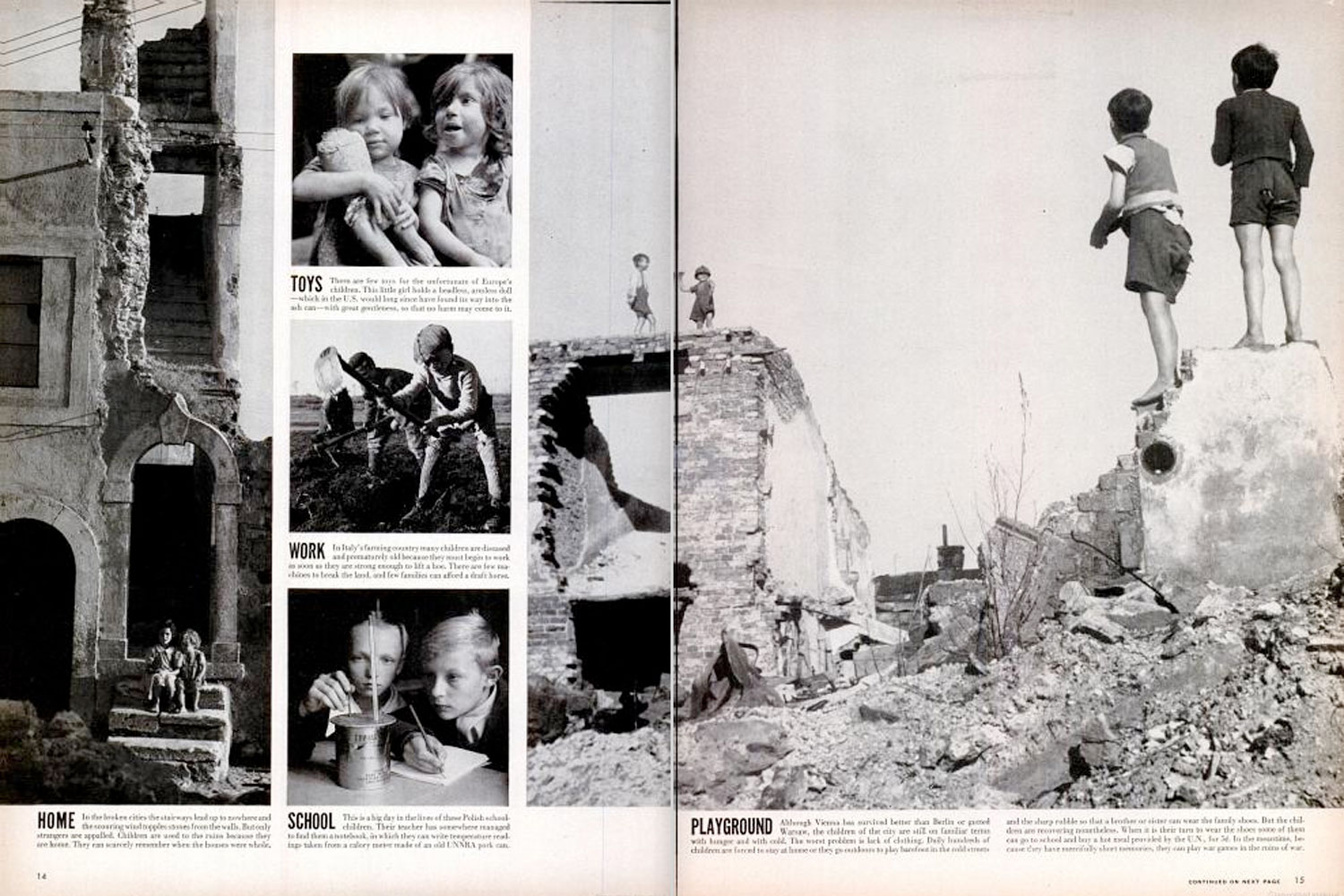
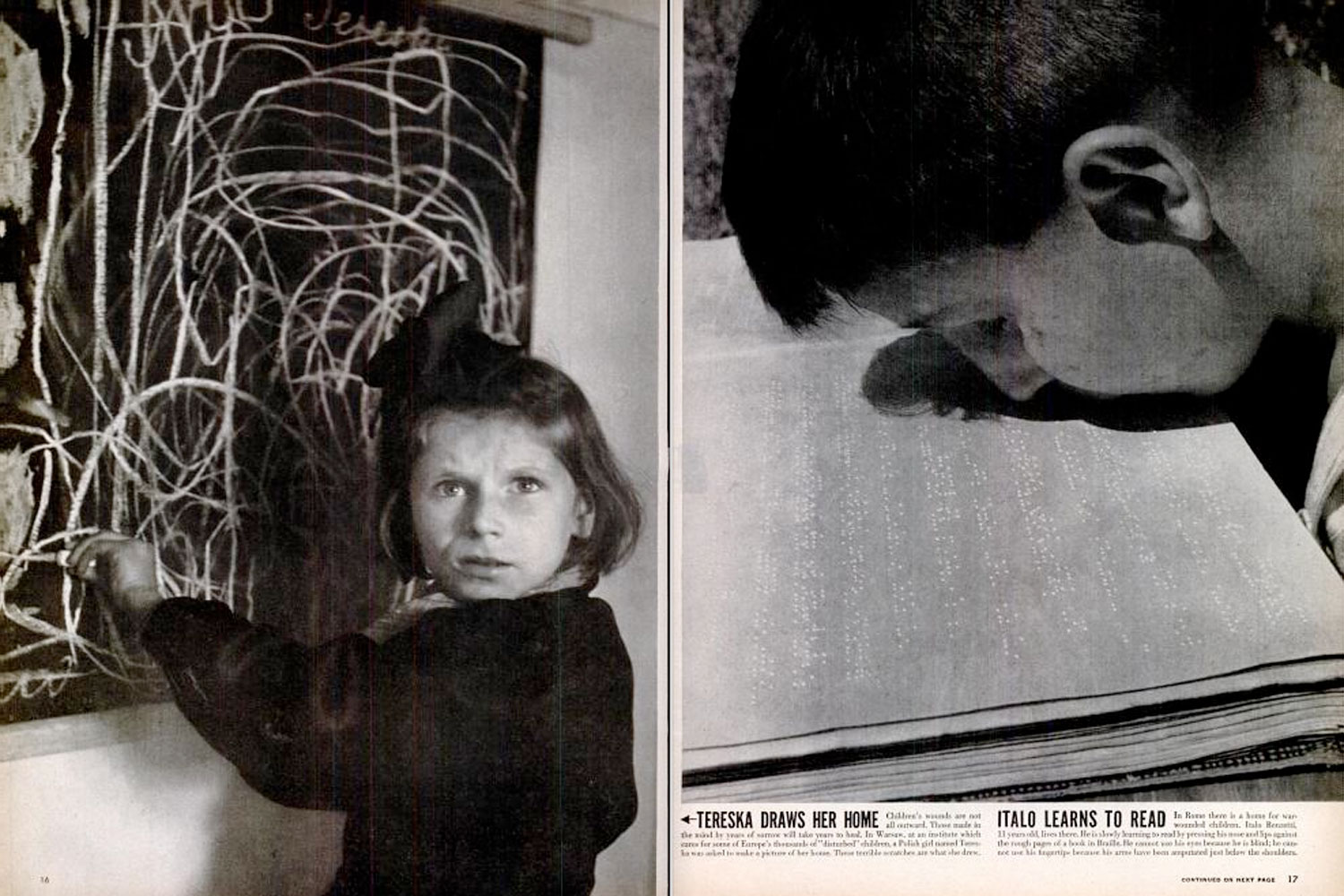
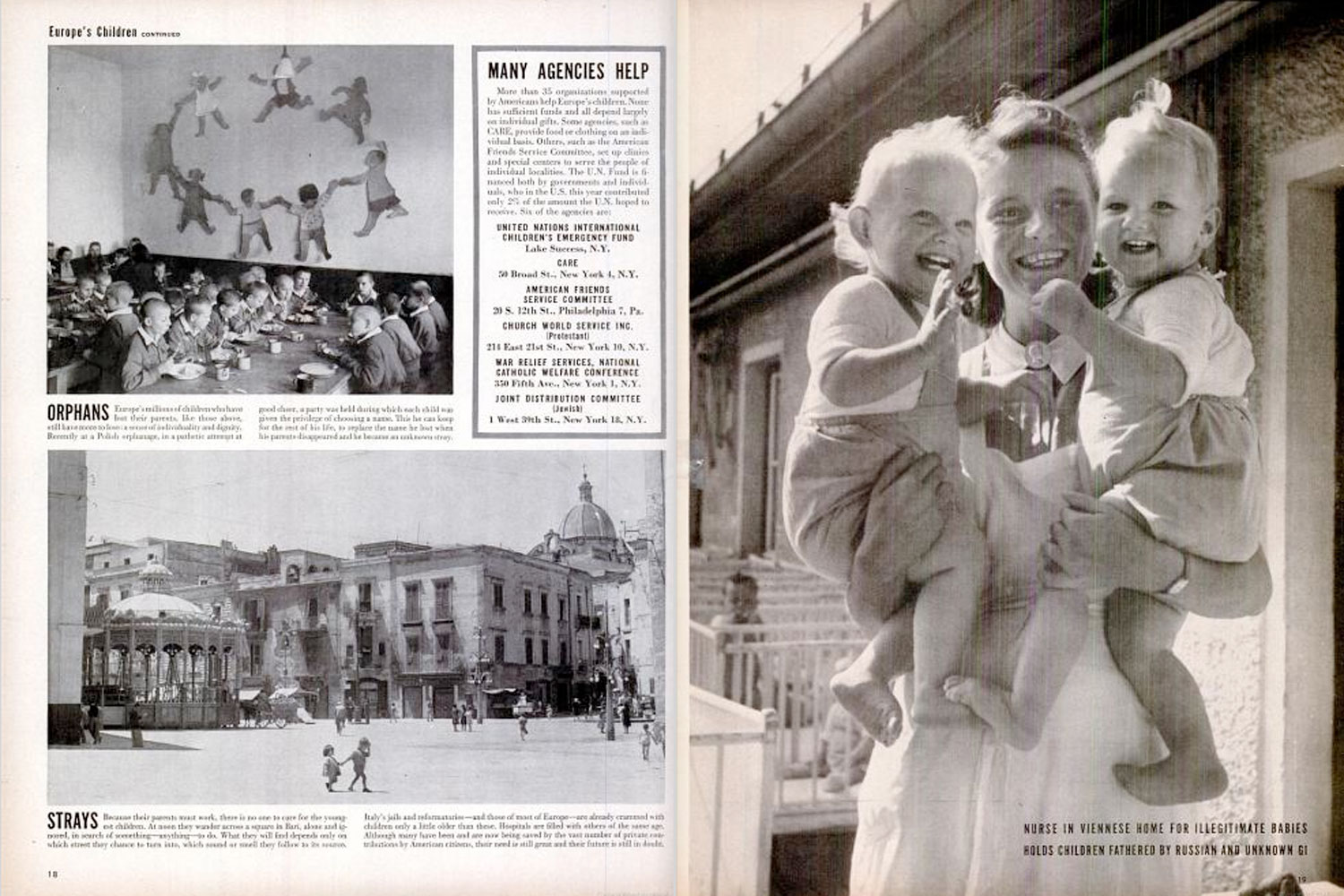
More Must-Reads from TIME
- Inside Elon Musk’s War on Washington
- Meet the 2025 Women of the Year
- The Harsh Truth About Disability Inclusion
- Why Do More Young Adults Have Cancer?
- Colman Domingo Leads With Radical Love
- How to Get Better at Doing Things Alone
- Cecily Strong on Goober the Clown
- Column: The Rise of America’s Broligarchy
Contact us at letters@time.com